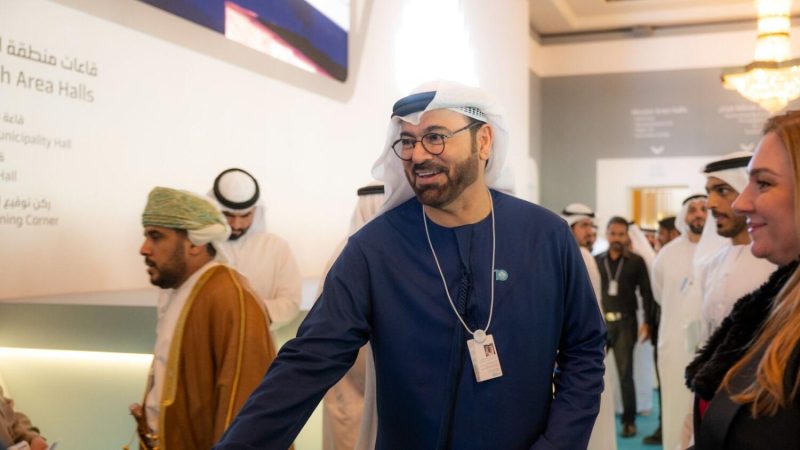
Adoption Of Artificial Intelligence Is Inevitable, Not Optional, UAE Minister Says
Speaking to the attendees at the opening of the World Government Summit (WGS), Mohammad Abdullah Al Gergawi, Minister of Cabinet Affairs, WGS Chairman said that since its establishment in 2013 the world has witnessed crucial moments in its history.
“Our reality, expectation and our understanding of the future changed,” he said.
He added, “data plays an important role in policy making, economy and the services offered by governments. Those who own data, own the future.”
“The World Government Summit discusses opportunities challenges and foreseeing the governments of the future. Our reality, expectation and our understanding of the future changed. We saw events that changed the world faster than we imagined,” he said.
He listed a number of them, including the planet’s enormous rise in temperature, natural disasters that cost the world more than 3 trillion dollars, Brexit, and the Covid-19 pandemic, which cost the world 12 trillion dollars and caused the loss of 12 million lives. He said that the globe is also experiencing the highest rate of inflation in a decade and the highest food costs in 60 years. “Unfortunately, we also have a Russian-Ukrainian which might cost the world approximately 2.8 trillion dollars, and there is an increasing danger of a nuclear war,” he said.
Artificial intelligence, Al Gergawi emphasized, is one of the of the main forces to be reckoned with when it comes to looking into the future. “Artificial intelligence is the start of collective mind. Each one of us will become capable of being a writer, researcher, artist, lawyer, doctor and even a poet,” he said adding, “ChatGPT and other applications will give us all skills that we never thought we would have, and it will affect all sectors.”
To make his point, Al Gergawi played a part of Beethoven’s 10th symphony which he didn’t complete before his death but that was completed by artificial intelligence, 200 hundred years after his death. “The adoption of these technologies is inevitable and not optional. The future conflicts between superpowers will not be geopolitical but technopolitical on artificial intelligence,” he said.
Data, Al Gergawi stressed, is an important resource for all governments. “When it comes to date 5,000 per cent more data has been produced in comparison to last decade. It plays an important role in policy making and economy and the services offered by governments,” he told attendees adding that if the content on the internet since its inception were to be printed it would fill more than 300 billion pages in comparison to 70 billion pages for all books that are recorded since the beginning of history. “Those who own data, own the future,” he added.
Al Gergawi said that there are many transformations will affect the world in the future: climate change, the changing economic world map, population growth, and the change in understanding literacy in the light of the continuously changing artificial intelligence.
“If we are living a problem of refugees today because of politics the future it will be climate change. It’s expected that there will be more than 1 billion refugees by the year 2050. The world will face 23 trillion dollars as a result of climate change and it will affect all life,” he said.
He also said that the world is moving towards a new economic map and that the economy of E7 countries will be double that of G7 countries by 2050 and that this will create economic clusters which will divide the world. “This means that governments will have to make decisive economic, technological and geopolitical decisions,” he said.
Al Gergawi said that the concept of literacy will change around the world and that illiteracy will mean not being able to deal with artificial intelligence. “In the next decade tens of millions of jobs will be vacant because of the lack of suitable skills. Unemployment for governments will not be limited to creating jobs but to have the right calibre and technical skills for the jobs of the future as well,” he said adding that this fundamental transformation in the understanding of literacy requires a revolution of education in the world.
Over the next three days, more than 20 presidents and 250 government and private sector leaders from more than 150 countries will discuss topics affecting governments around the world during the World Government Summit.
@2022 Hostpot In Dubai. All Right Reserved
